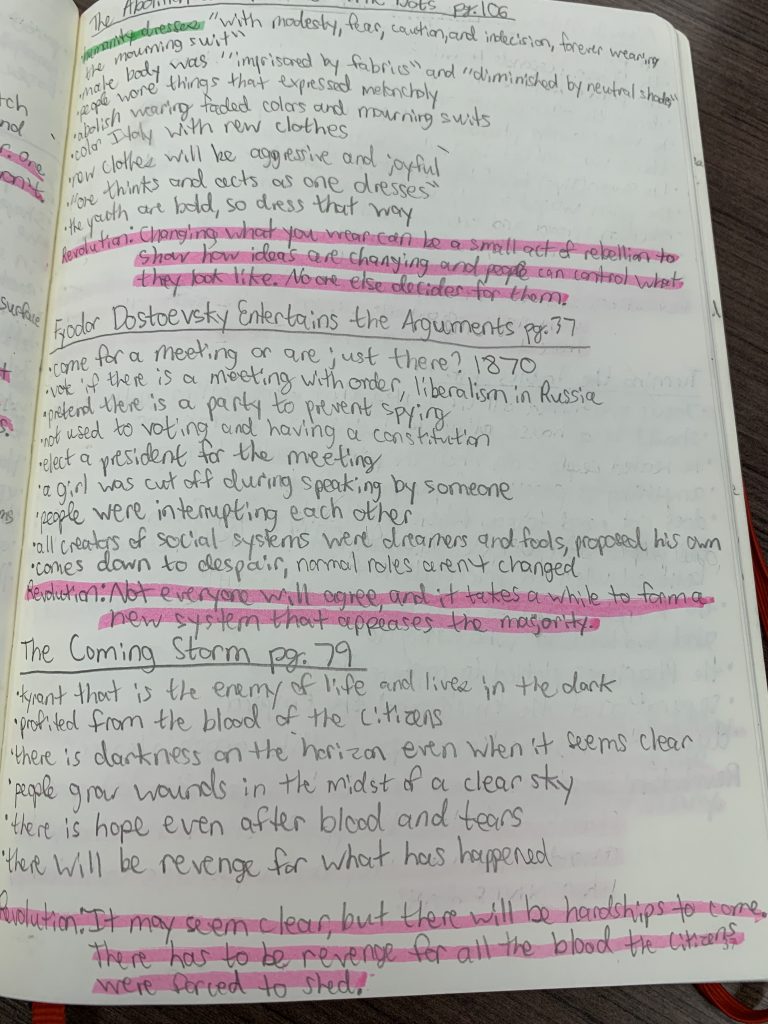Revolution is sudden and comes with many hardships. The main purpose is to change the norm and how society views it. Changing how things are done and influencing people’s minds is almost impossible, but revolution strives to do so in order to have a more truthful and equal world. In Elba by Nelson in Lapham’s Revolutions, the pigment print shows a planet covered mostly with water (61). In my notes, I wrote how there was only land on the circumference of the world, but this landmass is about to emerge in what looks like an uninhabited world (Picture 1). When I was first looking through Revolutions, the almost emptiness of the world struck me. The land was not the focus, but the empty water was. The longer I looked at it, I realized that the water was not empty. There was a landmass beneath the surface. I think it was included in this book because at first revolutions do not seem like much. They start with what seems like small events like the Greensboro Sit-Ins during the Civil Rights movement or a few scientists studying why the solar system does not fit in a geocentric view during the Scientific Revolution. Eventually, they lead to something larger like a landmass underneath the water. Revolution strives to change how the world is seen, but it is usually very hard to change people’s views. In The Coming Storm of Revolutions, the author describes a tyrant and how there is darkness on the horizon (79). I wrote how the tyrant was the enemy of life and the people had wounds even when the sky seemed clear (Picture 2). This poem stood out with the language and imagery and how there was darkness even in the light. Revolution is not easy, and it is full of pain and hardships that many do not see. It is full of invisible wounds waiting for light to shine on them and defeat the tyrant that is society.
In Unit 1, we discussed identity and what it means. In Two Treatises of Government by Locke, the world is supposed to be in a state of nature. Everyone is equal with property in themselves. However, we discussed how this state never happens and does not apply to all. Toni Morrison discusses in “Moral Inhabitants” the concept of “other” and how people use this categorization to see each other as less than human (discussed more in Paper 1). This connected to our discussions in Unit 3 about how we are all human, but our experiences are different. For one assignment, we made a passport with the artist Tintin Wulia. We each had a different country and discussed how a citizenship and a piece of paper means something different depending on where it came from. We talked about how we are all human, but we are treated differently and experience a variety of events that not many will be able to truly empathize with. This inequality is part of what revolutions try to fix in society and part of why revolutions occur. Humans are supposed to be equal, but people have never allowed for that to happen because they want power for themselves. Revolutions strive for equality one step at a time.
In Unit 2 we discussed scientific revolutions with paradigm shifts and conceptual schemes. A paradigm shift is a revolution because it changes how things in the world are perceived. When we read Borges, he describes an abstract world where nothing is absolute and reality is up to perception. We discussed reality and how people perceive the world differently. However, that view is always changing. Because of this changing reality in the world, nothing can be absolute. Even when we see the same things, we will perceive them differently. Unit 4 discussed how Christianity was used in two very different ways even though it is the same religion. Certain verses were used to support slavery while the concept of equality was used against slavery. We also discussed how if you grew up learning a certain view of religion, it was hard to get rid of it. Our reality consists of many different things, and an accepted reality by society will and needs to be changed over time. Revolution allows for this to occur and is inevitable like the changing perceptions described in the abstract world created by Borges. Society does not like to change, but revolution makes it face the change that needs to happen in order to strive for a more equal world.
Essentially, humans are supposed to be similar because we all have a body and are equal in a state of nature. However, we find ways to interpret things differently and make them fit into our individual conceptual scheme. Nothing will be agreed on by everyone, and a revolution changes the norm in order to create a better and more equal life. Sometimes it does not succeed, and it contains many problems within itself. Creating a paradigm shift within society is very difficult and filled with hardships. Revolution is inevitable because there are many parts of society that need to be changed, and history has never allowed for equality to occur. It is never going to be easy because life and people are not always good, and humans often follow what society believes. Revolution helps change the norm and gives a voice to those society ignores.

